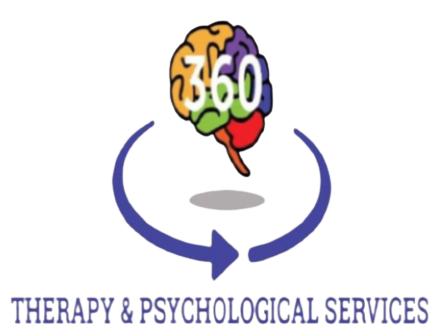How to Find the Right Therapist for Your Mental Health Matters

In today’s fast-paced world, mental health care is as essential as physical health care. Just like we wouldn’t hesitate to see a doctor for a broken bone, we shouldn’t hesitate to seek therapy for mental or emotional difficulties. Your mental health matters and you should always be concerned about it!
Finding the right therapist is a crucial step in ensuring that you receive the support and care you need to improve your mental well-being. Whether you’re facing stress, anxiety, depression, or navigating life changes, selecting the appropriate therapist can significantly impact your progress. In this guide, we’ll explore how to find the right therapist for your mental health matters.
Why Taking Care of Your Mental Health Matters
Your mental health matters just as much as your physical health. It affects how you think, feel, and behave in daily life. Good mental health helps you handle stress, relate to others, and make healthy choices. Conversely, neglecting your mental health can lead to emotional, psychological, and even physical issues over time. Whether you’re seeking individual counseling therapy for specific concerns or ongoing support for overall well-being, finding the right therapist can make all the difference in your healing journey.
Understand Your Needs and Goals
Before starting your search for a therapist, it’s important to identify your specific needs and goals. Are you seeking help for anxiety, depression, or trauma? Or perhaps you’re interested in exploring personal growth and emotional resilience? Understanding what you’re looking for will help narrow down your search for a therapist who specializes in your specific concerns. For example, if you’re struggling with severe mental health issues, you might want to consider visiting a Top psychological evaluation clinic for a comprehensive assessment to determine the best course of treatment.
Research Different Types of Therapy
There are many different types of therapy available, and understanding them can help you make an informed decision. Some common forms of therapy include:
- Cognitive Behavioral Therapy (CBT): Focuses on identifying and changing negative thought patterns and behaviors.
- Psychodynamic Therapy: Explores unconscious patterns and how they affect behavior.
- Humanistic Therapy: Emphasizes personal growth and self-actualization.
- Family or Couples Therapy: Focuses on relationships and improving communication.
Each type of therapy has its own approach, so consider which might best suit your needs. Individual counseling therapy is one of the most widely used approaches, and many therapists offer this service for various mental health concerns.
Consider the Therapist’s Credentials and Experience
Once you’ve determined what type of therapy you’re interested in, it’s time to look at the credentials and experience of potential therapists. Make sure the therapist is licensed and has specialized training in the area that aligns with your mental health concerns. For example, if you’re dealing with trauma, find someone who has experience in trauma-focused therapy. In many cases, an individual therapy center can offer therapists with different areas of expertise, allowing you to find someone well-suited to your needs.
Look for Compatibility and Rapport
One of the most important factors in finding the right therapist is feeling comfortable with them. Therapy is a deeply personal experience, so it’s essential that you feel understood and supported by your therapist. During your first session, pay attention to how the therapist communicates and whether you feel a connection. Do they listen actively and without judgment? Do you feel safe discussing sensitive topics with them? Trust and rapport are key components of successful therapy, so don’t hesitate to explore different options until you find a therapist with whom you feel comfortable.
Check Availability and Practical Considerations
When it comes to therapy, consistency is key. Ensure that the therapist you choose has availability that matches your schedule. It’s also important to consider practical details such as the therapist’s location or whether they offer online sessions if in-person meetings aren’t feasible. Additionally, make sure the cost of therapy fits within your budget. Many therapists offer sliding scale fees, meaning they adjust their rates based on your financial situation, which can make therapy more affordable. An individual therapy center or individual therapy services may also offer flexible pricing options, allowing you to prioritize your mental health without undue financial stress.
Get Referrals or Read Reviews
If you’re unsure where to start, asking for recommendations from trusted friends, family members, or healthcare providers can be a good first step. Personal referrals can provide insight into what working with a particular therapist might be like. Additionally, reading online reviews or testimonials can help you gauge whether a therapist might be the right fit. Many Top psychological evaluation clinic or therapy centers post client reviews, allowing you to get a sense of their reputation and effectiveness.
Don’t Be Afraid to Make a Change
Even after doing extensive research, it’s possible that your first therapist may not be the right fit, and that’s okay. Therapy is a personal journey, and sometimes it takes a few tries to find the right person to support you. Don’t be discouraged if you don’t click with the first therapist you see. Your mental health matters, and finding the right therapist is worth the effort. Always prioritize your well-being and comfort.
FAQs: Frequently Asked Questions
Why does taking care of your mental health matter?
Taking care of your mental health is crucial because it affects every aspect of your life, from how you think and feel to how you interact with others. Good mental health allows you to cope with stress, overcome challenges, build relationships, and recover from setbacks. Ignoring mental health can lead to worsening emotional and physical symptoms, making it harder to function day-to-day.
How will you take care of your mental health?
To take care of your mental health, it’s important to be proactive. This includes seeking therapy when needed, practicing self-care, maintaining a healthy lifestyle, and reaching out for support from friends and family. Engaging in regular individual counseling therapy can also provide structured support to help you manage and improve your mental well-being.
What can you say about mental health matters?
Mental health matters because it influences every facet of your life. From your work performance to your relationships and overall happiness, mental health is a cornerstone of a balanced, fulfilling life. Prioritizing your mental health by seeking therapy, practicing mindfulness, and adopting healthy coping mechanisms is key to long-term well-being.
Takeaway
Finding the right therapist can feel like a daunting task, but it’s an essential step in taking control of your mental health. Whether you’re searching for individual therapy services, a Top psychological evaluation clinic, or simply seeking someone who truly understands your unique needs, the right therapist can guide you toward healing and self-improvement. Remember, your mental health matters, and you deserve the best care possible. Don’t hesitate to take the first step
recent post

Best Tips for Choosing the Right Family Doctor for Your Health Care

What to Expect from Psychodiagnostics Assessment – A Complete Guide


How to Find the Right Therapist for Your Mental Health Matters


